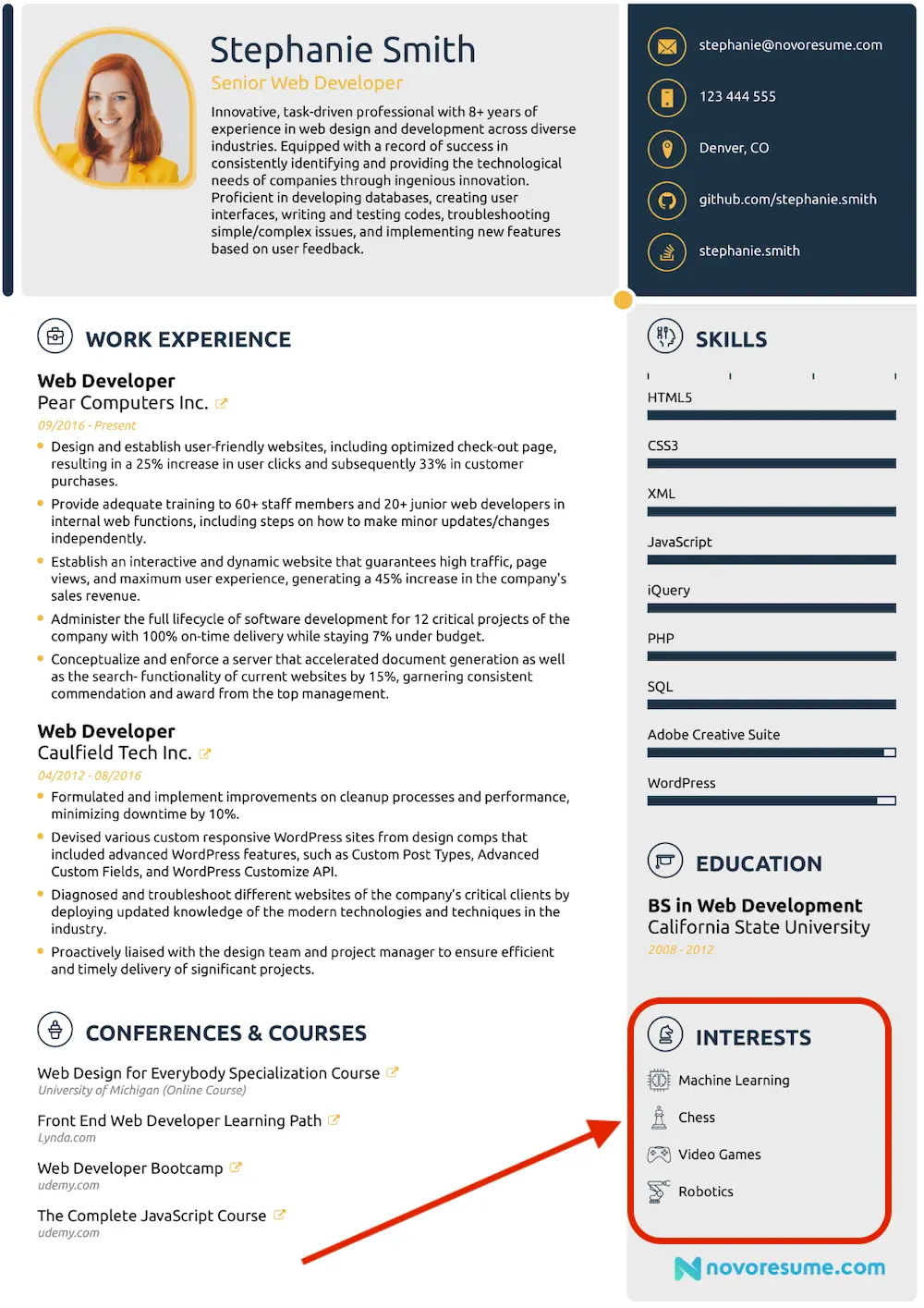When you are putting together your CV, you are likely focusing on your work experience, educational background, and key skills. However, there is often a little section that sparks a bit of debate: hobbies and interests. Many people wonder if including these personal snippets is truly necessary or if they simply take up valuable space. The truth is, a thoughtfully curated hobbies and interests section can actually add significant value to your application, providing insights that your professional history might not fully capture.
This often-underestimated part of your CV can be a powerful tool to showcase your personality, demonstrate transferable skills, and help you stand out from the crowd. It is not just about listing what you do in your free time; it is about strategically presenting aspects of your character that align with the demands of the role you are applying for. Understanding how to effectively integrate this into your cv template hobbies and interests can make all the difference in catching a recruiter’s eye.
The Unseen Value of Your Leisure Pursuits
You might be wondering why a hiring manager cares if you enjoy hiking or playing chess outside of work hours. The reality is, your hobbies and interests can reveal a lot about your soft skills, character, and how well you might fit into a company’s culture. While your experience section details what you have done, your interests can hint at who you are and what drives you. For instance, being part of a sports team demonstrates teamwork, dedication, and the ability to work towards a common goal. Running marathons speaks volumes about discipline, perseverance, and goal setting.
Think about it this way: a CV primarily showcases your professional capabilities, but employers are also looking for well-rounded individuals who can contribute positively to their work environment. Your hobbies provide a glimpse into your personality and how you manage your time and energy beyond the 9-to-5. They can bridge gaps in your professional experience, especially if you are a recent graduate or changing careers, by highlighting skills acquired in different contexts.
However, it is crucial to be selective and strategic. Not every hobby is worth mentioning, and some might even be detrimental. The key is to link your leisure activities to skills that are relevant to the job. For example, if the role requires meticulous attention to detail, mentioning an interest in intricate model building or puzzle solving could be beneficial. If leadership is a key requirement, perhaps volunteering for a local charity or organizing community events would be a strong addition.

Making Your Hobbies Relevant
To ensure your hobbies section works in your favor, consider how each activity translates into a transferable skill that a potential employer would value. It is not enough to just list an activity; briefly explain the skill it demonstrates.
- **Team Sports (e.g., Football, Basketball):** Demonstrates teamwork, communication, leadership, and competitive spirit.
- **Volunteering/Community Work:** Highlights empathy, organizational skills, initiative, and dedication to a cause.
- **Creative Pursuits (e.g., Painting, Writing, Photography):** Shows innovation, attention to detail, patience, and often problem-solving abilities.
- **Strategic Games (e.g., Chess, Poker, Gaming):** Indicates analytical thinking, strategic planning, decision-making under pressure, and problem-solving.
- **Outdoor Activities (e.g., Hiking, Cycling, Camping):** Suggests resilience, self-reliance, fitness, and an adventurous spirit.
- **Learning a New Language or Instrument:** Reveals dedication, a willingness to learn, patience, and cultural awareness.
Crafting the Perfect Hobbies and Interests Section
Once you have identified which hobbies to include, the next step is to present them effectively on your CV. This section should typically be placed near the end of your CV, after your professional experience and education, but before references. It should be concise and easy to read, usually in a short bulleted list or a brief paragraph. Avoid using too much space, as the primary focus of your CV should always remain on your professional qualifications.
When writing about your hobbies, aim for specificity and impact. Instead of just saying "reading," consider "avid reader of historical non-fiction, developing a broad understanding of global events." This provides more insight into your intellectual curiosity. Similarly, instead of "traveling," you might write "backpacking across Southeast Asia, enhancing adaptability and cross-cultural communication skills." The goal is to make your hobbies work for you by subtly highlighting positive attributes.
Remember to keep it professional. While you want to show your personality, avoid anything controversial, overly personal, or that could be misinterpreted. Politics, religion, or any activities that might raise concerns about reliability or judgment should generally be omitted. Authenticity is key; only list hobbies you genuinely pursue and can comfortably discuss in an interview, should the topic arise.
Here are a few quick tips for writing this section:
- **Keep it brief:** One or two lines, or a short bulleted list is usually sufficient.
- **Focus on transferable skills:** Always think about what skill a hobby demonstrates.
- **Be authentic:** Only include genuine interests you are happy to talk about.
- **Avoid controversial activities:** Steer clear of anything potentially polarizing.
- **Tailor to the role:** Just like your skills and experience, customize your hobbies to align with the job description.
Ultimately, a well-curated hobbies and interests section can serve as a subtle yet powerful differentiator in your job application. It offers a glimpse into your character and soft skills that your professional history might not fully convey. By strategically selecting and presenting your passions, you are not just filling space; you are painting a more complete picture of yourself as a valuable and well-rounded candidate, enhancing your overall cv template hobbies and interests and making a memorable impression on potential employers.
